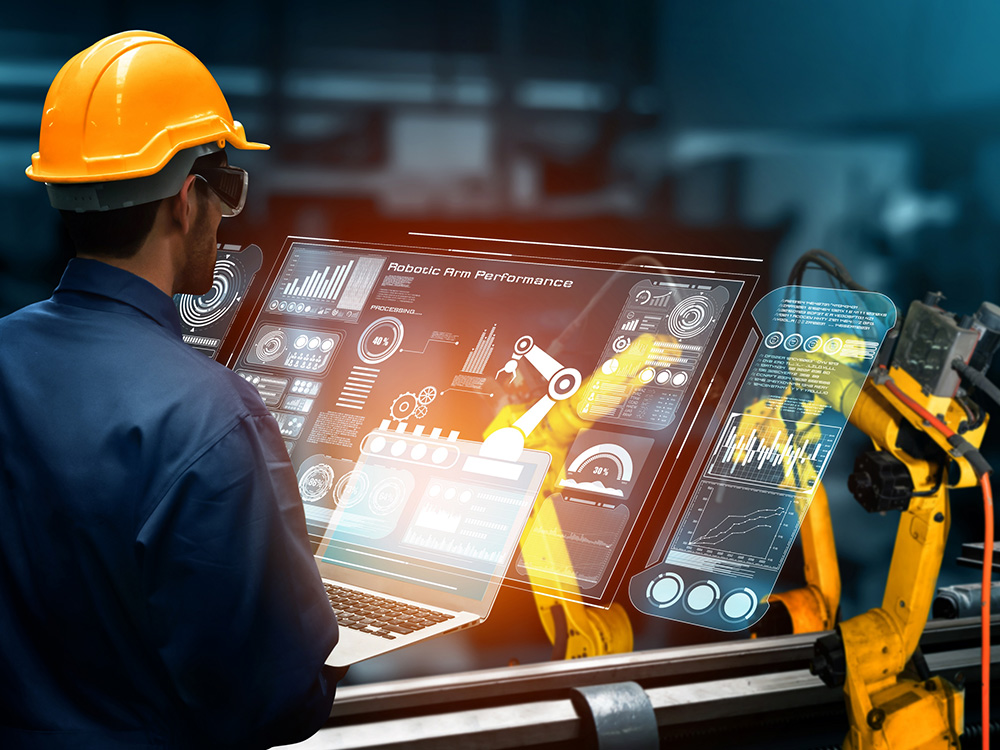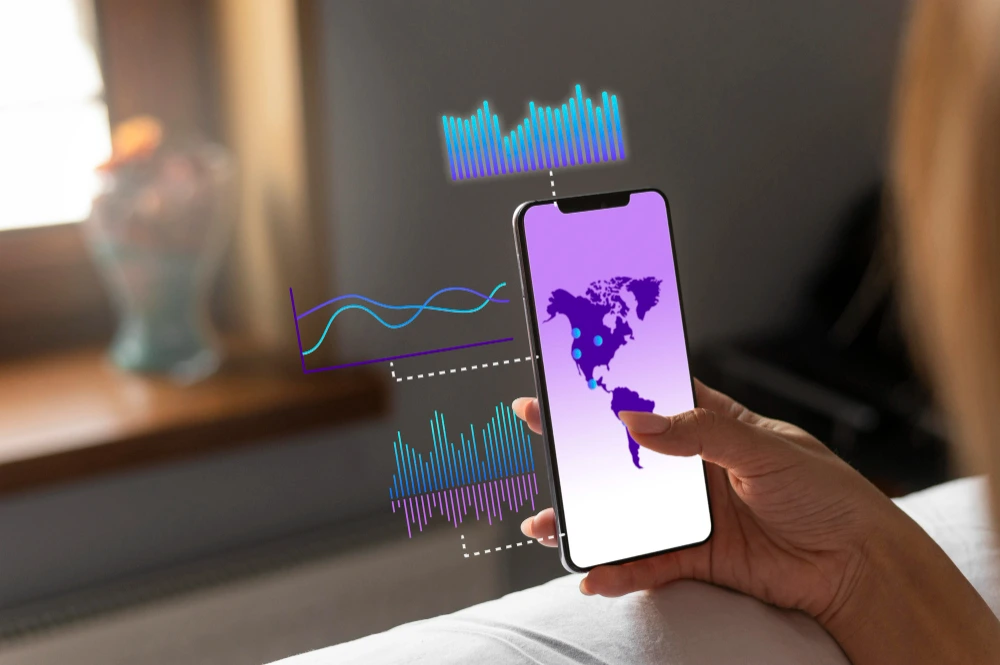
With the introduction of the Internet of Things (IoT), the manufacturing sector is going through a significant upheaval. The term “Industrial IoT” refers to the applications of IoT technologies and principles in industrial settings, that gather and exchange data to help manufacturers optimize their operations and make sensible choices.
We at axiusSoftware have been developing IoT-based applications that can help almost every industry, especially the manufacturing industry. Our AI/ML and IoT solutions help drive growth with our data-driven solutions. With us, you can anticipate business development and identify cost-saving opportunities for your company.
Connected devices and data analytics are transforming the manufacturing industry. They are opening doors for previously unheard-of levels of productivity, efficiency, and creativity by automating most processes.
Let us take a look at how IoT is revolutionizing the manufacturing sector today.
How Connected Devices Can Increase Productivity in the Manufacturing Sector
An essential part of the Industrial IoT ecosystem is connected devices. These gadgets, which have sensors and actuators, make it possible to monitor and manage industrial processes in real-time.
Manufacturers can gain important information about the conditions and operations of their equipment by collecting data on various characteristics, including temperature, pressure, vibration and other parameters.
With the use of this data, companies can now:
1. Outline redundant maintenance procedures.
2. Identify possible problems before they become unnecessary expenses.
3. Use networked devices to promote increased productivity and efficiency.
4. Automate procedures, decrease downtime and maximize resource usage.
How IoT in Manufacturing Industry is Harnessing the Power of Data Analytics.
The volume of data produced by connected devices in the production environment is overwhelming and acts as a repository for data analytics. Data analytics uses cutting-edge algorithms and machine learning strategies to obtain useful patterns and insights from unstructured data.
Data analytics gives firms the ability to make their processes more efficient, and productive. They can be of great assistance in the following ways:
- They can help optimize processes. Outlining and following the pattern to drive more efficient results.
- They can improve quality control by setting manufactured units against a set parameter. This ensures that only goods meeting the highest standards are released onto the market.
- They can also simplify supply chain management in the context of Industrial IoT by automating critical processes.
- Manufacturing companies can spot process bottlenecks, inefficiencies, and opportunities for improvement by analyzing archival and current data.
- Businesses can now estimate demand using data analytics, which will help them manage inventories more effectively and prevent scarcity of goods.
How IoT is Being Integrated into the Manufacturing Process
Industrial IoT has enormous promise, but there are obstacles to its successful application. When integrating various devices and systems in a production setting, connectivity, and interactivity problems may occur.
Protecting data privacy and security becomes crucial when working with large amounts of sensitive data. Strong communication infrastructure, data encryption, and stringent access controls are necessary to address these issues.
Challenges in IoT Integration
The lack of worker readiness and a shortage of skilled workers are the two major issues facing IoT implementation in the manufacturing industry.
To properly use and manage Industrial IoT technology, manufacturers must engage in the training and upskilling of their staff.
Manufacturers can fully utilize Industrial IoT and promote innovation within their organizations by developing a trained workforce.
The Pros of IoT Integration in Manufacturing: Success Stories
The beneficial effects of Industrial IoT in manufacturing are illustrated in several compelling case studies.
- Industrial IoT technology has been adopted throughout General Electric’s plants as part of the company’s Brilliant Factory Project, which has led to considerable cost reductions. It has also helped to improve efficiency factors.
- Utilizing connected devices and data analytics, BMW’s Smart Logistics program is another example of an optimized supply chain. As per BMW, they can now assure just-in-time delivery of parts while lowering inventory costs.
- With the help of Siemens’ Digital Enterprise Suite, industrial IoT was integrated into all aspects of their manufacturing procedures, allowing for real-time monitoring and control as well as proactive maintenance.
The Future of Connected Devices and Data Analytics in the Manufacturing Industry: What lies ahead?
IoT in manufacturing is about to undergo another revolution owing to new trends and technology. Emerging computer architectures such as Edge and Fog Computing will lead to faster data processing and analysis, lowering latency and supporting real-time decision-making.
Large-scale IoT solutions may scale up more easily thanks to the implementation of 5G and wireless connectivity, which guarantee faster and more reliable data transmission.
With the further development of artificial intelligence and machine learning algorithms, businesses will be able to gain deeper insights and automate critical processes.
We at axiusSoftware are thus committed to using data analytics to turn insights into actionable insights. We aim to support you throughout our journey of discovering the efficiency of IoT tools and provide AI/ML & IoT services that will help make your business scalable.











